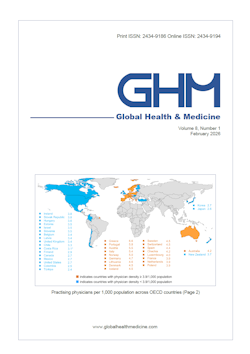Global Health & Medicine 2021;3(5):293-300.
Taiwan accelerates its efforts to eliminate hepatitis C
Chien RN, Lu SN, Pwu RF, Wu GHM, Yang WW, Liu CL
The estimated prevalence of anti-HCV was 3.3% (1.8-5.5%) in the general population in Taiwan with several regional disparities. The reactive anti-HCV in different regions may vary between 0% and 65%. The National Hepatitis C Program (NHCP) office estimated approximately 623,323 persons reactive with anti-HCV based on several extensive region- and cohort-wide studies. Taiwan has accelerated its efforts to eliminate hepatitis C since 2018 by committing to achieve World Health Organization (WHO)'s 2030 goal of treating 80% of eligible patients by 2025. Many aggressive measures by the Ministry of Health and Welfare (MOHW) have been ongoing including several key success factors such as political commitment by the MOHW to finance this national program and improve National Health Insurance (NHI) reimbursement restrictions for treatment. Meanwhile, the Taiwan Centers for Disease Control (CDC) instituted harm reduction programs and the Health Promotion Administration (HPA) started to improve awareness and perform national screening programs. The NHCP office instituted monitoring, evaluation, micro-elimination and funding to linkage to care programs. In addition to sustainable financing, it is imperative to scale-up screening coverage through a precision public health approach to fill the gap of under-diagnosis. Hopefully, we can achieve early elimination by announcing the treatment target of 250000 CHC patients by 2025.
DOI: 10.35772/ghm.2021.01064







